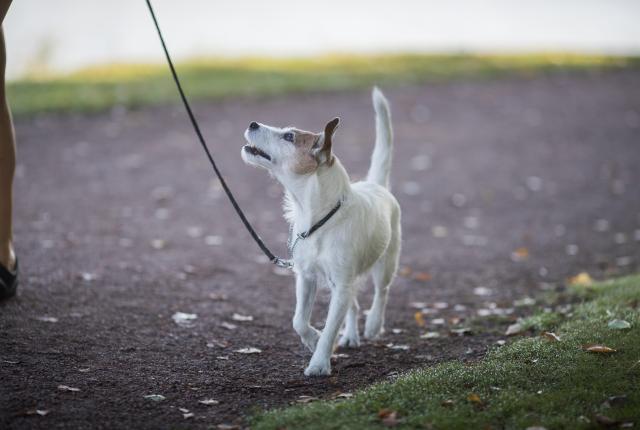Dog owners are required to keep their dogs leashed starting on 1st of March – extremely important due to wildlife breeding season


The Finnish Hunting Act states that dogs must be kept on a leash all across Finland starting on Sunday, 1 March. The leashing period lasts from the beginning of March until 19 August.
During this period, dogs must be always kept on a leash when outdoors, or kept so that they may be immediately put on a leash. Dogs may only be allowed to roam free with the permission of the owner or holder in a yard, garden or other fenced area.
Respecting this obligation is important in order to give space to wild animals during their breeding season.
- It is very important that birds and other animals are allowed to nest and raise their offspring in peace. Nature is at its most vulnerable during breeding season, says Senior Advisor Tapani Veistola from the Finnish Association for Nature Conservation.
Not having dogs running about after the beginning of March is particularly important for galliformes. Even if your dog isn’t known to go after birds, they view the dog as just another predator and are quick to flee their nest. Dogs may also destroy nests.
- Birds that nest on the ground and the offspring of mammals are in greatest danger, Veistola says.
According to Veistola, the warm winter may have led birds to nest earlier than usual, particularly in the south.
- One brood of young blackbirds already left the nest in Espoo, he says.
In addition to birds, many mammals start their mating season in early spring. Badgers, for example, may give birth to offspring as early as March.
The obligation to keep dogs on a leash applies to most dogs, with a handful of exceptions. It does not apply to dogs working for the police, Customs, Defence Forces or the Border Guard or dogs being trained for herding, guiding or guarding tasks. Puppies under the age of five months and government working dogs are also exempt from the obligation.
A derogation may also be made when a pointing dog or other bird dog is being trained without disturbing protected game animals during their breeding season.
During the leashing period, hunting unprotected game animals is allowed with dogs besides hounds as long as the dog does not disturb protected wildlife.
Please note that the Hunting Act obligates you to also keep your dog on a leash outside the leashing period if you don’t have the permission of the landowner or the holder of the hunting right to keep your dog unleashed. The dog owner must always have control over their dog even if it is unleashed with permission.
In protected areas, dogs must be kept on a leash around the year.
The Public Order Act has its own section on control of dogs. According to the Act, dogs must always be kept on a leash in built-up areas. A dog may only be kept unleashed in dog parks, dog training areas and enclosed yards. However, the dog must still be supervised by its owner or keeper in these areas. Owners and keepers must also ensure that their dog's faeces are not left on the ground in a maintained section of a built-up area.
The Public Order Act also states that a dog may not be unleashed on an exercise track or similar running track. Unleashed dogs are not allowed on public beaches, children’s playgrounds, market places during trading hours, ski tracks maintained for public use or sports fields. Ski tracks where dogs are specifically allowed are the exception.
A good dog owner knows dog etiquette and follows it to ensure that the dog’s encounters with fellow dogs, other animals and humans alike go as smoothly as possible.